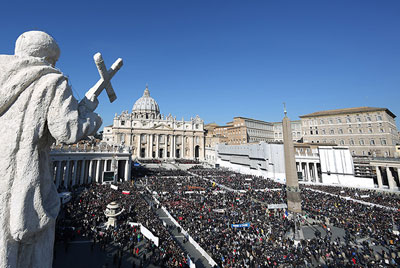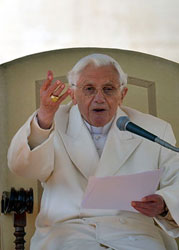Always perceived the presence of God
Pope Benedict XVI. said good bye to the faithful in Rome: he held his last general audience in front of 250,000 pilgrims and tourists. The Pope promised to all who came and watched via TV, that he will remain in service for the Church.
“The Lord gave us days of sun and of light breeze, days in which the fishing was good. There were also moments when there were stormy waters and headwinds,” the pope said.
“But I always knew that God was in that boat and I always knew that the boat of the Church is not mine, is not ours, but is his and he will not let it sink,” the leader of the world’s 1.2 billion Catholics told the cheering crowd.
Decision after intense reflection
Benedict XVI. said he had taken the decision of his official resignation after deep consideration, after he had felt that he no longer had the strength to fulfill the ministry. He made this decision for the good of the Church. The Pope thanked the faithful who had received his resignation with respect and understanding.
“I will continue to accompany the Church with prayer and reflection.”
Benedict XVI also asked for prayers for the Church and for his successor. “Often we speak of a demise of the Church, but she proves that she is alive,” assured the Pope. Several times, his words were interrupted by applause of the crowd.


